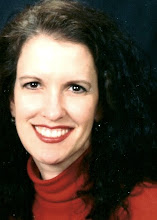Week 8 Reflective Essay
I have never been a very technologically savvy person. I have always been overwhelmed by the thought of learning how to use the various tools and programs that were offered on the Read/Write/Web, let alone even thinking about implementing them in my classroom, but after completing this course, Understanding the Impact of Technology on Education, Work, and Society, I am proud to say that I now know a little bit about a few of the many technological tools that the Read/Write/Web has to offer. By no means am I technologically literate, but as I forge ahead and continue my learning, I hope to eventually become as enriched by technology as I possibly can. I must be able to teach my students, these digital natives, how to use technology as an educational tool, because as it stands now, they are mainly using technology for social purposes.
At this point in time, the one tool I feel most comfortable with is blogging, but this course has forced me to try my hand at two tools I have never experimented with before: wikis and podcasts. These two tools were extremely challenging for me, but I muddled through and even though I barely scratched the surface where these tools are concerned, I can see how vital and indispensable they are and can be for the 21st century learner. During this course, I made a point of attending a technology workshop on wikis and podcasts to learn as much as I could about these two great tools, and I plan to continue to attend additional technology workshops in the future. Before this class, I was too intimidated to even consider attending a technology workshop; this class has forced me out of my comfort zone and has allowed me to try new things and to begin to consider teaching what I have learned to my students.
This course has also taught me the importance of teaching foundational 21st century skills, because today’s students will need these skills in order to “thrive in the 21st century” (Laureate Education, Inc., 2007). In my classroom, I largely focus on critical thinking, problem solving, teamwork and collaboration, and this course has taught me the importance of these skills and how they are needed more so now than they were “in previous generations” (Laureate Education, Inc., 2007).
One goal I wish to set for myself is to implement technology into my classroom little by little. I want to start a classroom blog initially, and when I become more comfortable with wikis, I would like to start a class wiki. I plan to set aside time to learn from fellow colleagues the best way to use wikis in the classroom. I have made a point of attending workshops that fellow teachers have presented on technology. My students are always working in groups whether they are peer editing, engaged in literature circles, debating, or working on study guide questions. Group wikis would allow me to truly monitor my students’ progress, and it would help me to keep track of who was actually putting in the time and who was falling short. I think using wikis to peer edit essays would be a great way to make sure all students were on board and collaborating to help each other progress and succeed. Wikis would encourage students to become better writers because they would be writing to an authentic audience and they actually care what others think.
A second goal I would set would be to allow my class to “go global”, to step foot into the global world and experience how students from other parts of the country and or other countries write and think. This would be a terrific educational experience for my students and me, and I plan on making sure this goal comes to fruition. As Will Richardson states in his book, Blogs, Wikis, Podcasts, and Other Powerful Web Tools for Classrooms, “Giving students a chance to share their work with a global audience is an important first step, but there is much more to it. It’s the conversations, the links, and the networks that grow from them afterward that we really begin to understand the professional implications for lifelong learning” (Richardson, 2009).
Reference:
Laureate Education, Inc. (Executive Producer). (2007). “21st Century Skills”. [Motion picture]. Understanding the Impact of Technology on Education, Work, and Society. Baltimore: Author.
Richardson, W. (2009). Blogs, wikis, podcasts, and other powerful web tools for classrooms (2nd ed.). Thousand Oaks, CA: Corwin Press.




